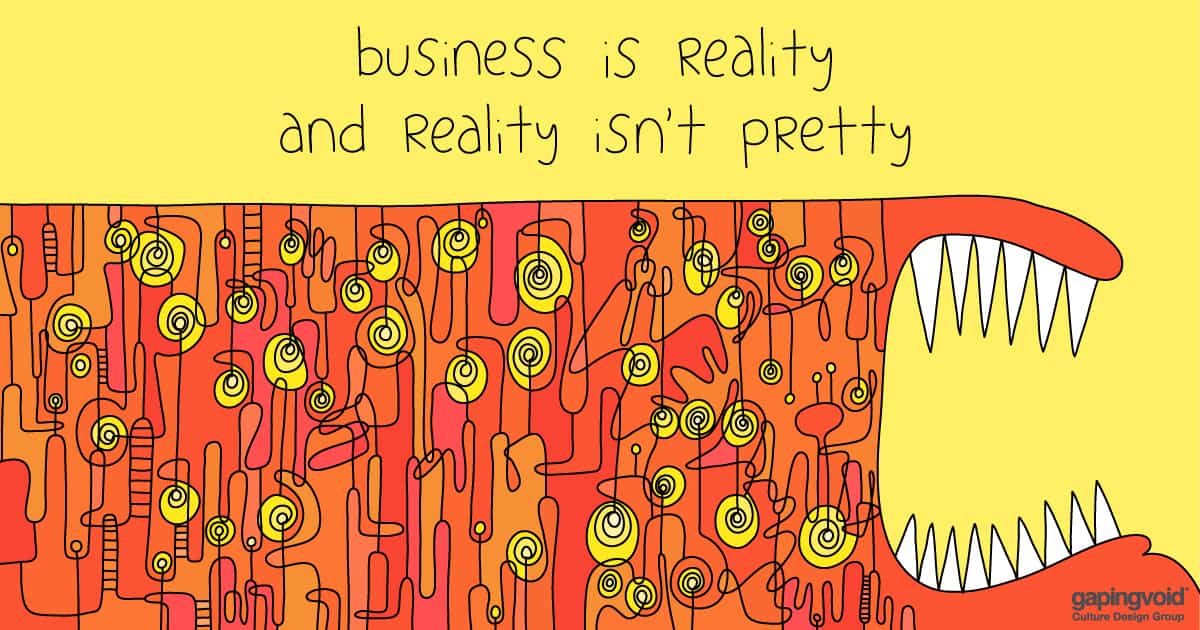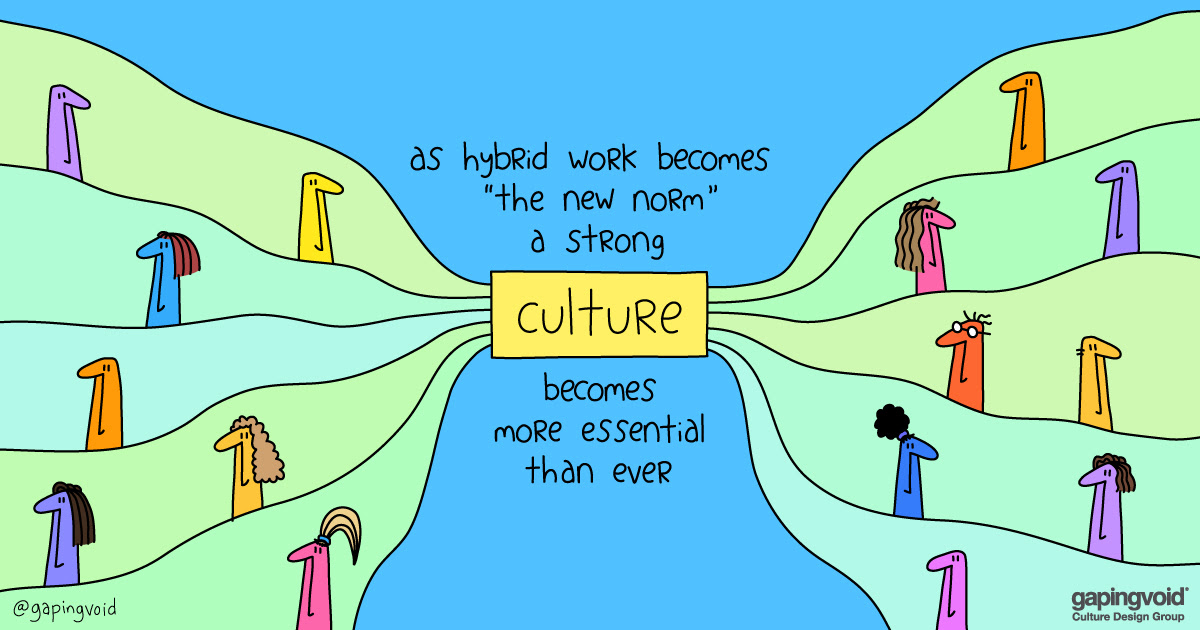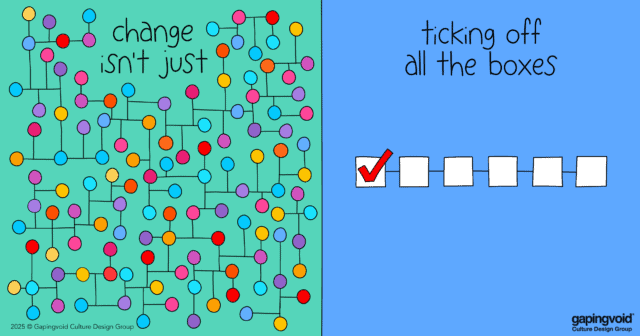
If you hang out on Facebook, you’ll see a lot of ads like this one.
It’s for a metal portable campfire. Lovely. Perfect for you and your hipster friends’ summer nights in the mountains.
Everyone in the ad is young and good-looking, everything is pleasant and mellow.
There is no angst. There is no disease, suffering, and death. There is no killing. There’s no lust or envy or avarice of pride. There are no eviction notices or IRS audits.
In other words, it isn’t real life.
It’s a lot like when the business gurus talk about “corporate culture”.
They like to emphasize the positive side of human interaction- teamwork, collaboration, empathy, and so on. A lot of happy “around the campfire” stuff, just like this ad.
But that isn’t real life.
In real life, there is tension, competition, unhappy customers, mishaps. Not everything is necessarily friendly, not everything is nice, regulators need to be satisfied; it’s definitely not easy. To thrive, first one must survive, and that is about balancing all kinds of things that are in conflict. Hard decisions must be made, sometimes a few eggs need to be broken.
A key point of culture is to create norms that provide implicit and explicit guidance. It creates the mental models that help make the hard decisions and keeps all stakeholders aligned, especially when things are tough. This is what strong cultures can do, keep everyone together, provide the motivation to show up and do the hard work. It’s not pretty, but it is reality and it is vital to the sustained success of any organization.
________________________________________________
How to make a success of the new era of hybrid working

- As offices partially reopen, hybrid working is set to become the new norm.
- This has the potential to increase diversity and inclusion in workplaces.
- However, to realise this potential, organizations will need to create a different kind of working culture for the new era.
Despite early fears, the work from home revolution that swept across much of the world during the pandemic did not destroy productivity. “A new study finds that, in fact, remote work does indeed make us more productive,” Bloomberg reported in April. And in some cases when productivity did suffer, studies show that it was largely due to constraints that workers had no control over, such as “poor telecommunication environment at home” and “rules and regulations that require some tasks to be conducted in the office.”
But what about company culture? Again, fears that it would fall apart did not pan out. In one survey, more people said their work culture actually improved during the pandemic. There’s no guarantee, however, that these successes will continue – or that any problems will be rectified – as more people start returning to offices. The world is entering a new era for what work will look like, and organizations need to adapt all over again.





